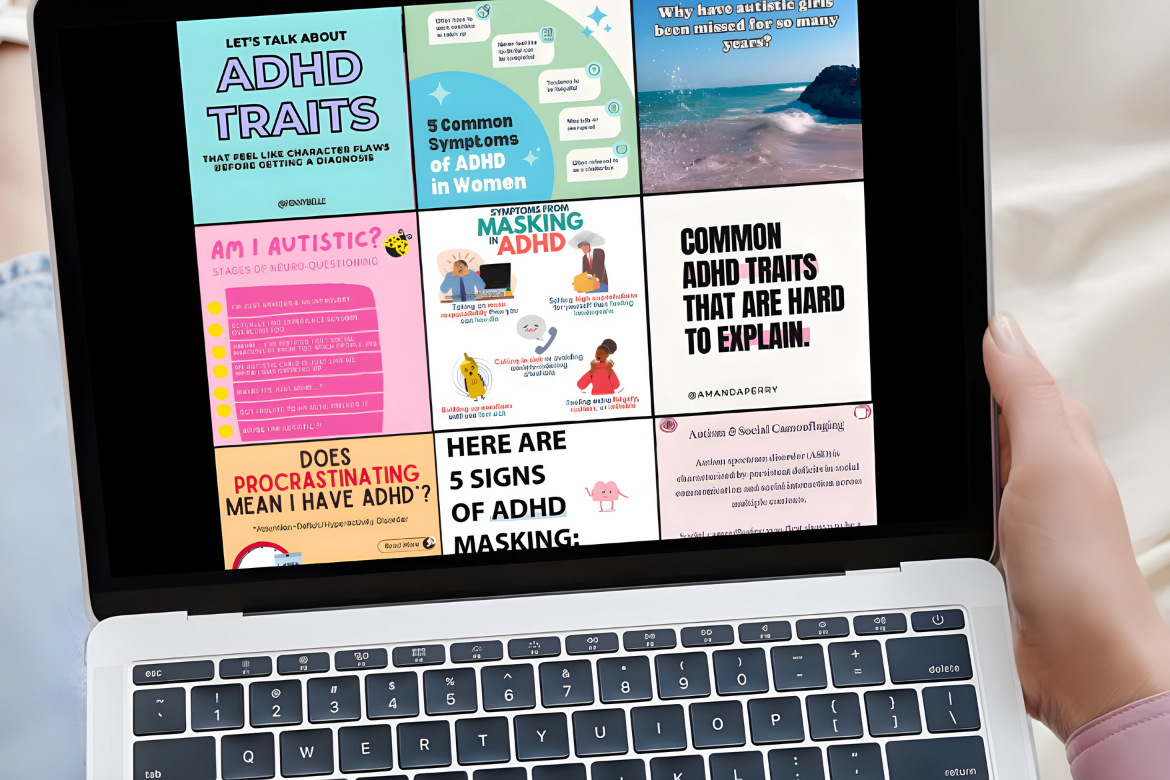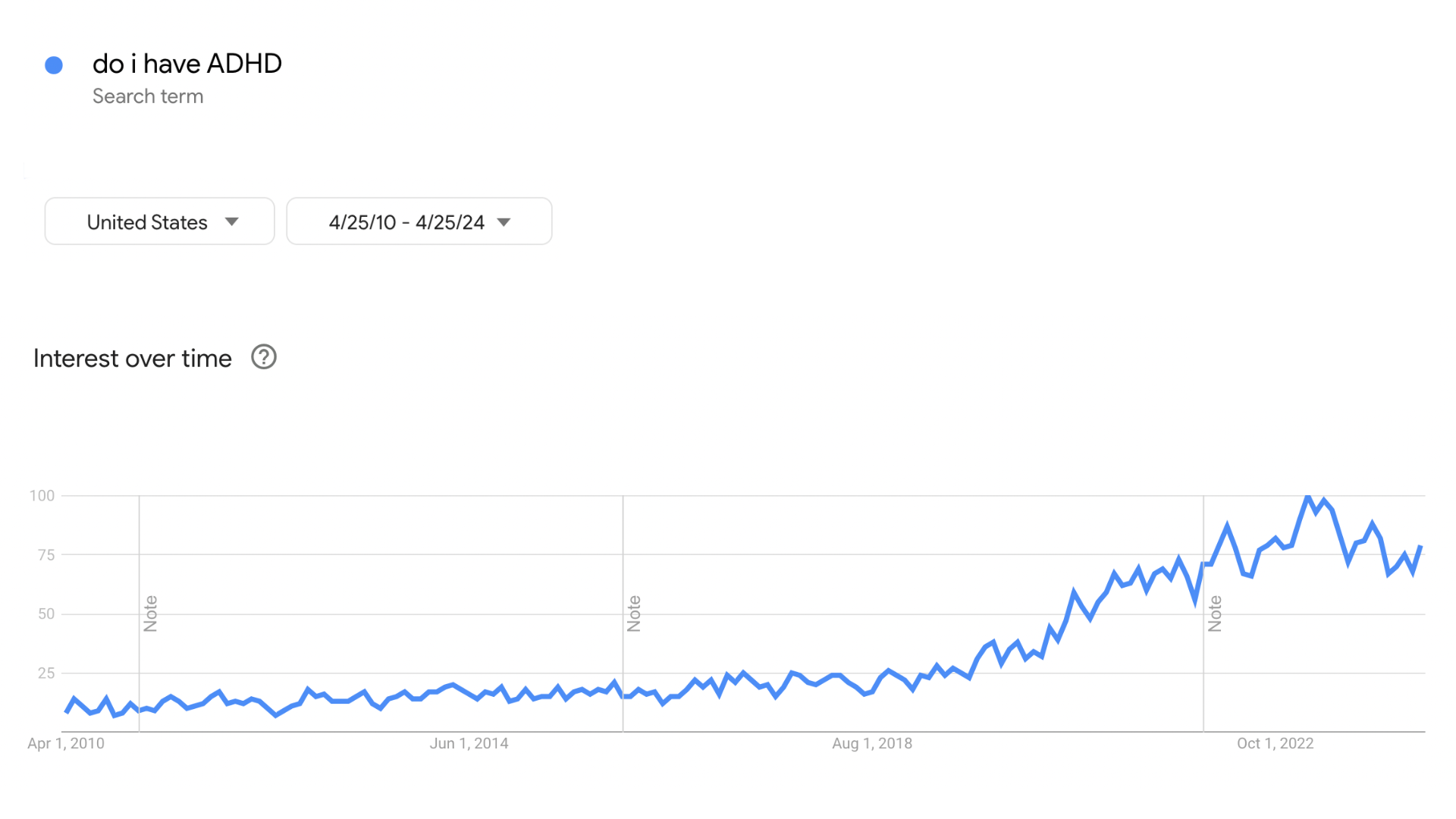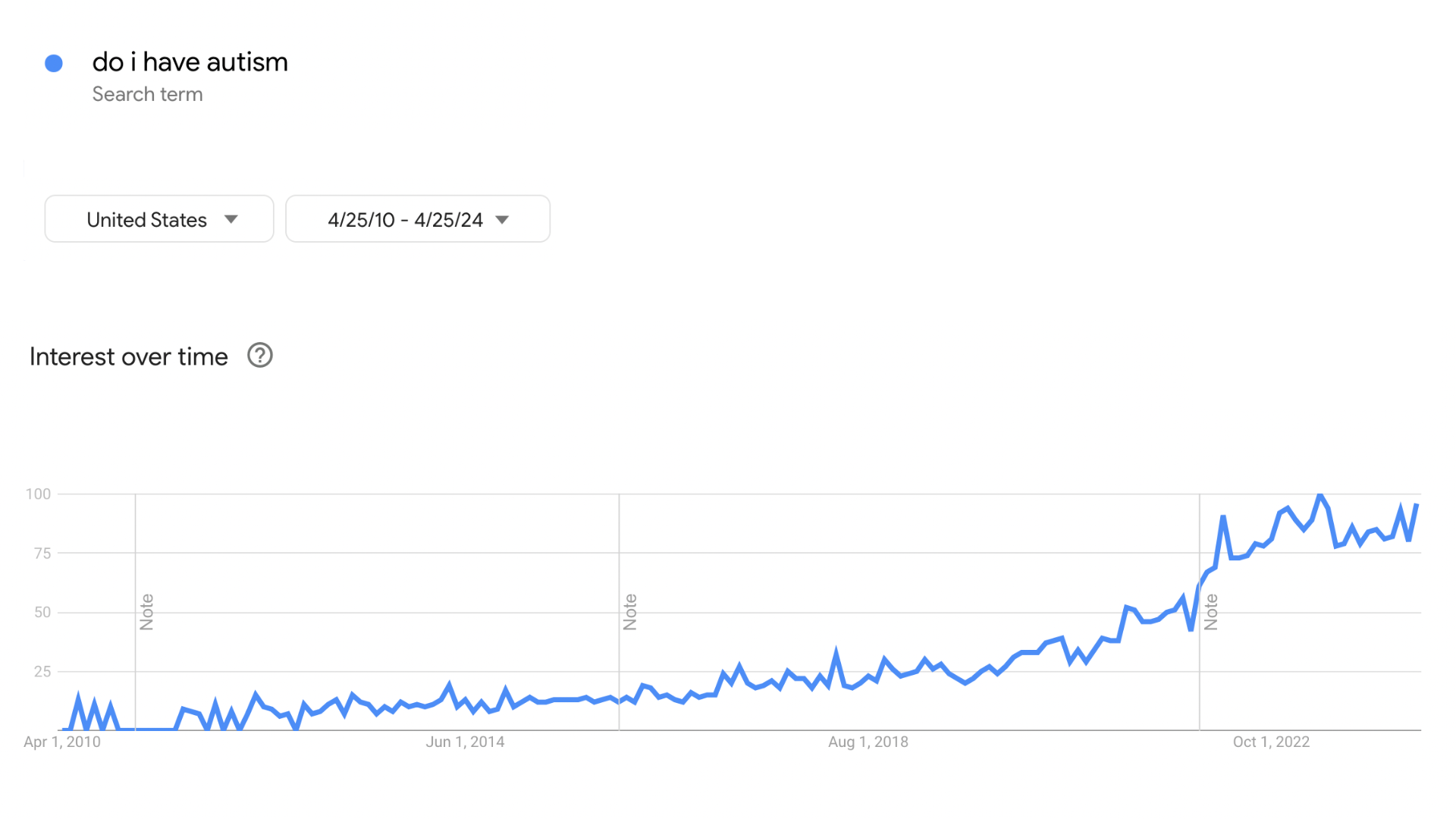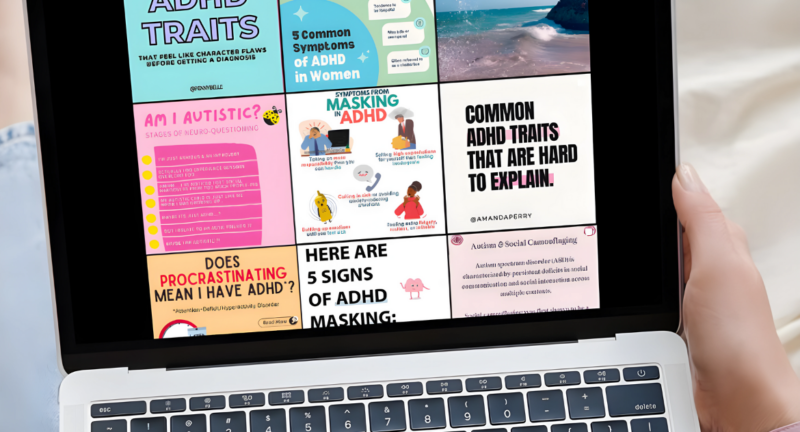
Self Diagnosis: Do I Have ADHD? Do I Have Autism?
In recent years, there has been a notable rise in the diagnosis of Autism Spectrum Disorders (ASD) and Attention Deficit Hyperactivity Disorder (ADHD). Concurrently there has been a significant increase in Google Searches for “Do I Have Autism?” and “Do I Have ADHD?”.


Socially, our understanding of behaviors and beliefs evolves over time as we gather more information. The periods of lockdown and extensive social distancing have provided many individuals with opportunities for introspection and self-evaluation of what constitutes “normal” behaviors and experiences. While introspection can be beneficial, it may also lead to self-diagnosis without proper context, which can empower some individuals but induce anxiety in others.
Traits vs. Symptoms vs. Diagnosis
Traits encompass aspects of personality that individualize our experiences, such as friendliness, shyness, or inquisitiveness. These traits influence our behavior, typically in ways that are not distressing to ourselves or others.
On the other hand, symptoms are internal experiences that signal something amiss, such as anxiety, depression, or nausea. Symptoms are often distressing and disruptive to our daily lives.
Diagnosis involves assessing a collection of symptoms based on their frequency, duration, and level of disruption or disturbance caused by them. Seeking professional diagnosis is crucial when symptoms become overwhelmingly negative and disruptive, as it is an essential step in obtaining necessary help.

Social Media and Self-Diagnosing ADHD or Autism Spectrum Disorders
Social media, when approached with discernment, can provides rapid insights into symptom profiles, traits, and experiences, fostering introspection and self-awareness. However, excessive engagement with social media may lead us to pathologize our traits, even if they didn’t pose a problem before we associated them with a disorder.
Absorbing snapshots of traits and their assumed link with “a diagnosis,” encourages us to look inward and examine our experiences without seeking further context. On most social media platforms, engaging with a specific type of content will prompt the algorithm to show you more of that content that creates a vacuum.
If you watch a couple of videos describing Autistic experiences, you are more likely to have that kind of content show up in your feed. Because we learn by repetition and positive reinforcement, especially if you feel some validation of your own experience by watching these videos, you may be more likely to ask yourself, “Do I have ADHD?” or “Do I have Autism” and then self-diagnose these experiences as being ASD or ADHD.
For instance, experiencing mild social and sensory challenges, discomfort in crowded places, or being easily distracted might prompt you to associate these experiences with having ASD or ADHD. This association could stem from the information absorbed through your social media engagement.
While this can be empowering for some, validating their experiences, it can also be distressing for others, redefining what was once normal as a disorder.
It’s crucial to recognize that experiencing negative emotions is part of life, and identifying traits linked to diagnoses doesn’t necessarily mean an accurate diagnosis.
There are several key questions to consider:
- Do these traits cause significant distress?
- Do they take a long time to dissipate?
- Do they significantly impact my daily life?
Reflecting on these can help navigate the complexities of self-awareness and mental health in the digital age.
Social Change, Traits, and Symptoms – Intersection of Diagnosis and Gender
With the rise in social media, Influencers simplify very complex experiences into concise bullet points. For instance, there has been a marked rise in diagnoses of Autism Spectrum Disorder (ASD) among females over the past two decades, likely due to many factors, including gender bias and lack of research findings.
In early diagnosis and treatment of ASD, it was believed that people with ASDs did not experience empathy. Feminine-presenting people are typically socialized to present a great deal of empathy, and they are taught to hide or mask their negative emotions.
On the other hand, masculine-presenting people tend to be socialized to hide empathetic emotions and emotional displays, so those individuals are already more likely to present in a way that aligns with ASD diagnosis, simply by their socialization. We can see a correlation here where understanding empathy and socialization in Autism Spectrum Disorders differently may increase the diagnosis of people who would not have previously been considered.

Is This A Reason for Professional ADHD Testing or an Autism Assessment?
Keep in mind that experiencing negative emotions is a normal part of life. What truly matters is the extent to which these negative emotions and experiences impact your life. If you find yourself feeling anxious in public spaces, experiencing discomfort with sensory stimuli, or communicating differently than others, it’s reasonable to view these as personal traits rather than symptoms, unless they have a significant or lasting negative impact.
It’s common to come across lists of traits that resonate with us as part of our identity, but interpreting them as “symptoms” can lead to feelings of anxiety and overwhelm. Self-diagnosis can feel empowering when these traits significantly disrupt and harm us, but it can also feel constraining and detrimental when we identify with them out of context.
At Counseling and Wellness Center of Pittsburgh, we value your insights, and work with you to determine the best course of treatment after a diagnosis. With a diverse clinical staff covering a wide range of approaches to treatment, there will be a great fit for you.
If I Self-Diagnose ADHD or Autism, Will I Be Listened To?
The rise in self-diagnosis, fueled by the increasing usage of social media, is somewhat understandable. Social media platforms often inundate users with information devoid of individualized context, fostering an environment conducive to self-diagnosis. The abundance of online information reinforces the inclination of many individuals to self-diagnose and, at times, become fixated on a particular diagnosis.
While a patient’s self-awareness regarding their experiences is essential for ensuring an accurate diagnosis, many symptoms associated with Autism Spectrum Disorders (ASDs) and Attention-Deficit Hyperactivity Disorder (ADHD) overlap with those of other mood, psychological, and physical disorders. Seeking guidance from a seasoned professional experienced in diagnosis is crucial for receiving appropriate treatment and support.
Has Social Media Made You Ask Yourself “Do I Have ADHD?” or “Do I Have Autism?”
If you’re looking for answers and collaboration with a therapist who specializes in ADHD testing and Autism, reach out to us at 412-856-WELL or fill out the form below.
Written by Ang Scotto (they/them), LSW
Related Posts
Self Diagnosis: Do I Have ADHD? Do I Have Autism?
Self Diagnosis: Do I Have ADHD? Do I Have Autism? In recent years, there has...
“Mom Brain” or Something Else? Understanding Undiagnosed ADHD in Women
Many women report having “mom brain,” in which they report being forgetful,...



